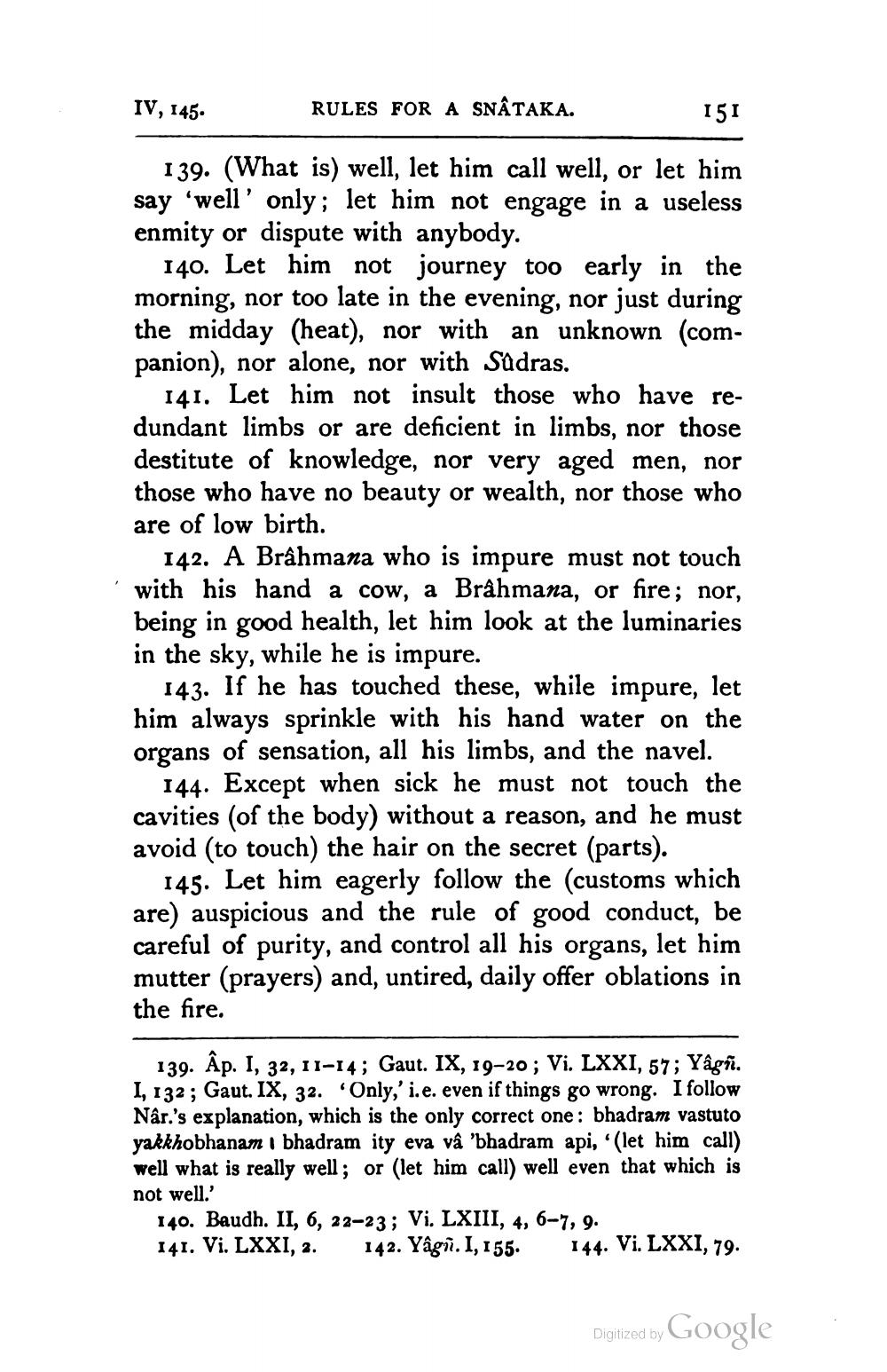________________
IV, 145.
RULES FOR A SNÂTAKA.
151
139. (What is) well, let him call well, or let him say 'well' only; let him not engage in a useless enmity or dispute with anybody.
140. Let him not journey too early in the morning, nor too late in the evening, nor just during the midday (heat), nor with an unknown (companion), nor alone, nor with Sudras.
141. Let him not insult those who have redundant limbs or are deficient in limbs, nor those destitute of knowledge, nor very aged men, nor those who have no beauty or wealth, nor those who are of low birth.
142. A Brâhmana who is impure must not touch with his hand a cow, a Brahmana, or fire; nor, being in good health, let him look at the luminaries in the sky, while he is impure.
143. If he has touched these, while impure, let him always sprinkle with his hand water on the organs of sensation, all his limbs, and the navel.
144. Except when sick he must not touch the cavities (of the body) without a reason, and he must avoid (to touch) the hair on the secret (parts).
145. Let him eagerly follow the (customs which are) auspicious and the rule of good conduct, be careful of purity, and control all his organs, let him mutter (prayers) and, untired, daily offer oblations in the fire.
139. Ap. I, 32, 11-14; Gaut. IX, 19-20; Vi. LXXI, 57; Yâgn. I, 132 ; Gaut. IX, 32. "Only,' i.e. even if things go wrong. I follow Når.'s explanation, which is the only correct one: bhadram vastuto yakkhobhanam i bhadram ity eva vâ 'bhadram api, .(let him call) well what is really well; or (let him call) well even that which is not well.'
140. Baudh. II, 6, 22-23; Vi. LXIII, 4, 6-7, 9. 141. Vi. LXXI, 2. 142. Yâgr. I, 155. 144. Vi. LXXI, 79.
Digitized by Google




